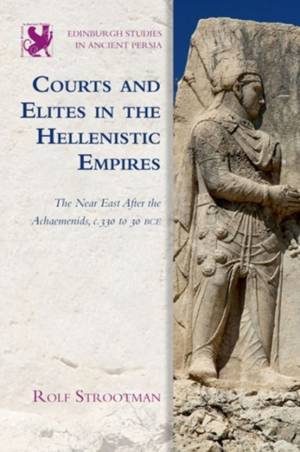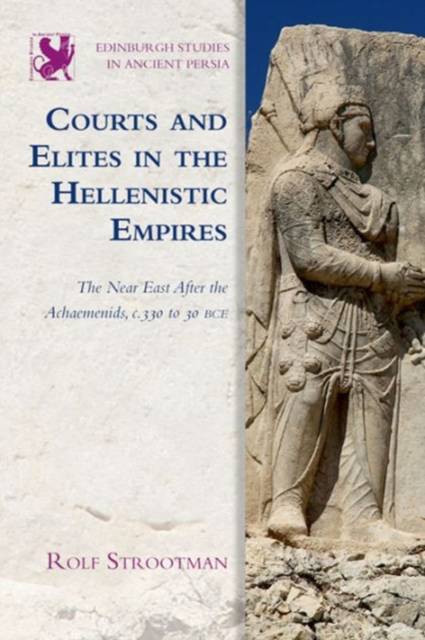
- Afhalen na 1 uur in een winkel met voorraad
- Gratis thuislevering in België
- Ruim aanbod met 7 miljoen producten
- Afhalen na 1 uur in een winkel met voorraad
- Gratis thuislevering in België
- Ruim aanbod met 7 miljoen producten
Courts and Elites in the Hellenistic Empires
The Near East After the Achaemenids, C. 330 to 30 Bce
Rolf StrootmanOmschrijving
Rolf Strootman brings together various aspects of court culture in the Macedonian empires of the post-Achaemenid Near East. During the Hellenistic Period (c. 330-30 BCE), Alexander the Great and his successors reshaped their Persian and Greco-Macedonian legacies to create a new kind of rulership that was neither 'western' nor 'eastern' and would profoundly influence the later development of court culture and monarchy in both the Roman West and Iranian East.
Drawing on the socio-political models of Norbert Elias and Charles Tilly, After the Achaemenids shows how the Hellenistic dynastic courts were instrumental in the integration of local elites in the empires, and the (re)distribution of power, wealth, and status. It analyses the competition among courtiers for royal favour and the, not always successful, attempts of the Hellenistic rulers to use these struggles to their own advantage.
It demonstrates the interrelationships of the three competing 'Hellenistic' empires of the Seleukids, Antigonids and Ptolemies, casts new light on the phenomenon of Hellenistic Kingship by approaching it from the angle of the court and covers topics such as palace architecture, royal women, court ceremonial, and coronation ritual.
Specificaties
Betrokkenen
- Auteur(s):
- Uitgeverij:
Inhoud
- Aantal bladzijden:
- 344
- Taal:
- Engels
- Reeks:
Eigenschappen
- Productcode (EAN):
- 9780748691265
- Verschijningsdatum:
- 8/04/2014
- Uitvoering:
- Hardcover
- Formaat:
- Genaaid
- Afmetingen:
- 157 mm x 234 mm
- Gewicht:
- 612 g

Alleen bij Standaard Boekhandel
Beoordelingen
We publiceren alleen reviews die voldoen aan de voorwaarden voor reviews. Bekijk onze voorwaarden voor reviews.











